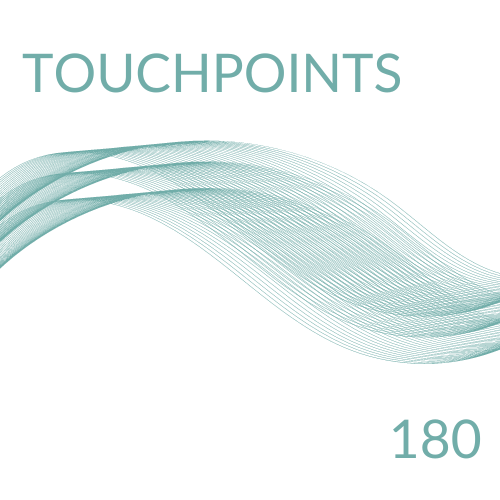
Danielle and Zach had been married 6 years. They hadn’t wanted to have children right away, and decided to start their family 4 years ago. But as time went on without getting pregnant, they began to worry that something was interfering with conception. It had reached the point for Danielle that each time her menstrual cycle began, she felt sadness, loss, disappointment, and a growing hopelessness. They finally decided they needed to make an appointment with a fertility specialist. They wondered what could be wrong, and if there was anything more they could do on their own to conceive. Danielle secretly wondered if PCOS might be the problem, and if there was a special treatment or diet for polycystic ovary syndrome.
Fertility Specialist Solves the Mystery
After a thorough examination, the specialist told them that Danielle did, after all, have polycystic ovary syndrome, or PCOS. (Danielle had read about this in a magazine at the doctor’s office.) The doctor explained it was the most common endocrine/metabolic disease in women. Apparently, her ovaries were producing excessive amounts of androgens, which are male sex hormones. These hormones are commonly found in women in very small amounts, but the elevated levels they saw in Danielle were interfering with her ovulation.

She explained that sometimes a woman’s body isn’t making enough of the hormones she needs to ovulate, which is to release a mature egg from her ovary. When she doesn’t ovulate, the ovary can develop small cysts. And these cysts make the androgens, causing the androgen levels to increase higher and higher.
So what happens with high androgen levels? Well … things like infertility, missed or extremely light periods, excessive hair growth on the chest, stomach, and back, weight gain in her belly and trunk, acne, and hair thinning like male pattern baldness, to name a few.
Danielle had been sad for a long time. She also struggled with tension about getting with friends, meeting new people, and fears of bad things happening. She’d never been like this before, but her reluctance to get out and about, to have fun and socialize, was becoming a bigger and bigger problem.
Sometimes Zach didn’t recognize her.
The doctor sent them home with printed information. So Danielle and Zach got on their laptops. They read about PCOS, and learned about the changes it can cause.
They continued to wonder if there was anything she could actually do — instead of medication — maybe a diet for polycystic ovary syndrome or lifestyle changes that Danielle should consider? They read a scientific article that described many of Danielle’s symptoms, but focused on depression, anxiety, and weight gain, in addition to infertility.
Not what she wanted to hear.
She was also frustrated with her oily skin and new acne that was breaking out on her face and shoulders. She hadn’t had problems with her skin since she graduated from high school!

But wow — as they began to understand depression and anxiety, she realized she was struggling with those symptoms, too. She just didn’t want to see herself that way. Neither of them had ever had these symptoms before, so this was new ground. And she had been gaining weight in the last year.
The more Danielle learned, the worse she felt about herself. Her body was the obstacle to their starting the family they both wanted so much. She also was ashamed of the way she looked.
They read more articles that described how PCOS seemed to be linked to shorter life spans, because of insulin resistance and Type 2 diabetes, cancer in the uterus, and cardiovascular disease.
So the pressing question rose in their minds: How could they get this under control?? She felt like PCOS was out to destroy her.
They read about medications that might help … and the risks that accompanied those medications. Danielle and Zach had a lot of talking ahead of them.
What To Do?
Zach had been watching his wife’s health and outlook deteriorate over the last year and a half. He was deeply concerned, but felt at a loss to help. However, all this information they’d discovered made him feel they were on a path of discovery to find out what they could do about it.
Knowledge is power, right?
They searched together for treatment options, and learned about medications for Type 2 diabetes, medications to prevent the hair growth and acne, medications to help Danielle ovulate, medications for depression and anxiety, and on and on.
They both found the idea of taking so many medications unsettling, especially if they were able to find a way to conceive. So they kept reading.

One Saturday morning, as they sipped coffee, they were reading more articles, and came across an article by Michael Monostra about seven studies that analyzed the use of a ketogenic diet for polycystic ovary syndrome. The article referred to this specialized diet as an intervention, rather than a means of losing weight in the traditional sense.
Ketogenic Diet as a Treatment
It turned out that in these studies, women participated in this nutritional intervention for at least 6 weeks, and as a result their reproductive hormone levels improved considerably.
They read that the ratio of luteinizing hormone (LH) to follicle-stimulating hormone (FSH) is normally around 1:2, but in women with PCOS it’s higher, around 2:3. This high LH needs to be brought down to balance with the FSH to reduce the symptoms and the infertility of PCOS.
These studies found that the dietary intervention of a ketogenic diet for polycystic ovary syndrome, actually did just that. What? And as a bonus, the women also lost weight. Because a ketogenic diet uses “good fats” to generate energy in cells, body fat is broken down, ketones are generated, and weight loss happens. The ketogenic diet consists of very low carbohydrates, so weight gain slows way down.
And because this results in a balance between LH and FSH, the body can once again ovulate.
Hope began to grow, and Danielle and Zach searched for a way to have medical supervision, and to get help for her depression and anxiety. They found a psychiatry practice that offered Ketogenic Psychiatry.
Hmmmm. Now that’s interesting…
So they checked out the website of that practice, and learned they offered a whole program for using a ketogenic intervention and lifestyle changes for psychiatric and metabolic conditions. There was a dietitian and a whole team who played an integral role in patient treatment. It seemed that this program could possibly help Danielle in multiple ways.

From what they read, a ketogenic diet was not just for PCOS, but was proven to reduce symptoms of depression and anxiety, as well as eating disorders, cardiovascular symptoms, Type 2 diabetes… even dementia. It was all about making the cells more healthy and resilient by fueling them with ketones.
Zach and Danielle decided to visit the practice together. They search had an individual evaluation—3 different appointments, lots of labwork, body composition testing… it was fascinating. They each got their own personalized treatment. And they loved the face that the doctor and the team joined them on taking walks in nature, meeting new friends on the same journey. Slowly they started to upgrade their food choices.
They discovered they loved eating nutrient-dense healthy food instead of the sugar filled sweets and high carb bread and potatoes they had always relied on. And the processed foods like hot dogs, lunch meat, breakfast cereals, and packaged muffins.
But they never looked back.
Avocados, eggs, cheeses, cream sauces, salmon, scallops, trout, bacon, steak, fresh mushrooms, colorful vegetables, and so many other delicious foods made up their meals. Eating had become a treat.

But more enjoyable was what happened to them. Within several weeks, the brain fog they both had experienced for so long, seemed to just lift. They both had a clarity they’d never really had before.
They wouldn’t have believed it.
Their energy for engaging in life, facing challenges, growing together as a couple, and feeling hope for the future began to permeate their minds and hearts.
Hope Was Growing
Then, it happened. Five months after starting the ketogenic program, Danielle seemed to missed her period. She was worried that the PCOS was causing her menstruation to stop so she went to the gynecologist.
After an examination and checking her urine sample, the doctor came back in her exam room beaming.
“Danielle,” she said. “You’re pregnant!”

“Are you sure?? I have PCOS!”
“Yes, I’m sure. You’re about 6 weeks along. Are you still participating in that ketogenic program?”
“Yes, Zach and I both are. It’s helped us so much, we don’t plan to ever stop. It’s become a lifestyle. We’re both so much healthier and happier. And now we’re going to be a family!!”
“I’m beyond happy for you both. I’m going to contact the author of that article you gave me about PCOS and ketogenic interventions and learn more. This may be a real breakthrough for other women like you. Please make a prenatal appointment for 4 weeks on your way out. And congratulations!!”
Danielle’s feet didn’t touch the ground as she walked to the appointment desk. She couldn’t wait to tell Zach. As soon as she got to the car, she called him.
“Hi Daddy… “
“Huh..? What do you mean?”
“Just what I said. You’re a daddy. I’m 6 weeks pregnant!!!!!”
Zach dropped the phone. She heard all the clunking clatter as he tried to retrieve it.
“Are you serious???””
“YES!!!”
“I love you, Momma!!!”
“Get off work as soon as you can. I’ll see you at home!”

Thirty five weeks later, Danielle and Zach welcomed a beautiful 7lb. baby girl. For the next several weeks they were sleep-deprived, but phenomenally happy. Then, three and a half years after that, they welcomed an energetic 8 lb. baby boy.
The symptoms of anxiety, depression, insulin resistance, pre-diabetes, acne, and hair growth on her body had all long subsided. She felt resilient, confident, energetic and hopeful about her life and her family. Danielle could never have imagined a diet for polycystic ovary syndrome could have transformed their lives like it had.
She and Zach had found metabolic balance and were vibrant. They relished their family life with exuberance. And they determined to bring up their children with healthy real foods that give their bodies the best foundation for health.
Consider what Ketogenic Treatment Can Do For You

What about you? Have you noticed how much can go wrong when your metabolism isn’t functioning at its optimum best? Do you suffer from depression, anxiety, brain fog… maybe insulin resistance causing weight gain? Do you have symptoms like Danielle did, or a diagnosis of PCOS?
It’s no less than remarkable what a ketogenic nutritional intervention can do to set your health on solid ground.
If you can relate to any or all of Danielle’s symptoms, and you’re overwhelmed about what to do, call us.

Our Touchpoints 180™ program includes a customized plan by our registered dietitian with real food that you like, nature walks for exercise, relaxation, and fresh air, videos to show you how to prepare simple meals for your ketogenic diet, and lots of support.
We want you to enjoy optimum health, relief from symptoms, and the joys of a clear, bright outlook. Let us help.

To the restoration of your best self,
